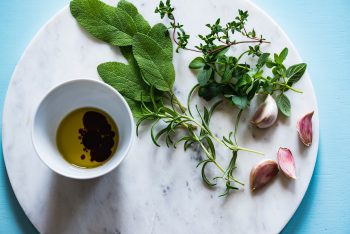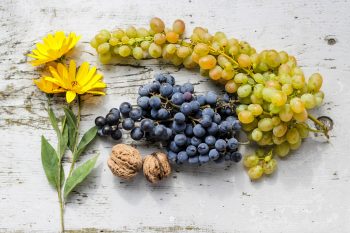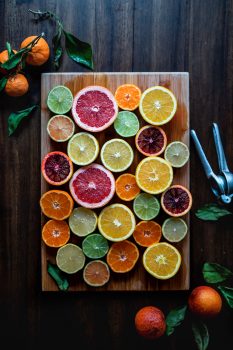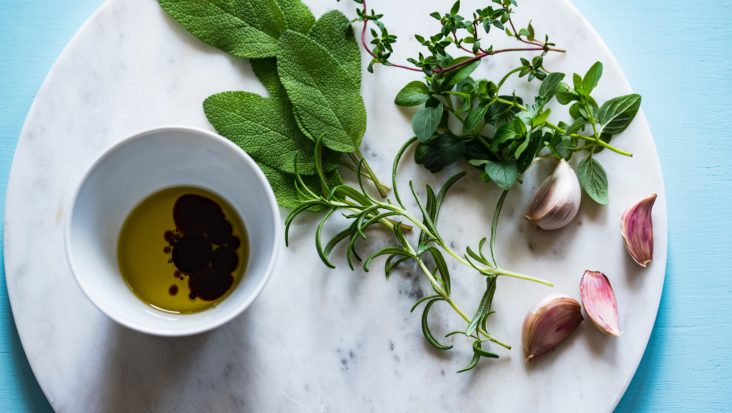
June is Alzheimer’s & Brain Awareness Month and is a time to bring awareness and show support for the millions of people worldwide struggling with Alzheimer’s or another form of dementia. According to the Alzheimer’s Association, 5.7 Million Americans are living with Alzheimer’s. By 2050, this number is projected to rise to nearly 14 million. With a family history of dementia myself, this is something I take very seriously, and you should too, especially if cognitive decline and impairment is something that has affected someone in your family. While we might not realize it while we’re young and healthy, the decisions we make now can greatly affect the health of our brain in years to come. I wrote a few weeks ago on my blog about ways we can protect our brain health, and in this post I’d like to cover some of the best foods we can eat that will help our brain remain sharp throughout our entire lives.

One of the best things we can do for our overall health, disease prevention, and to protect our brains and help us feel our very best, is to eliminate inflammatory foods which include: gluten, sugar, dairy, meats, fast and processed foods, fried foods, pastries, alcohol, food additives and preservatives. While you may think, “Pooh, that doesn’t leave a lot for me to eat!” it’s quite the opposite. Our bodies have evolved over many years to eat a diet that sustains us and helps us procreate which ensures the survival of our species. This diet does not include many of the foods that are in the Standard American Diet. In fact, there is a very strong correlation between the increase in processed foods and many of the dreaded diseases of our modern society. In particular, Alzheimer’s and other forms of dementia. Poor food choices and an accumulation of other environmental factors damage our brains throughout the course of our lives, and if you have the genes for dementia, these factors greatly accelerate the risk of getting the disease.

One of the best things we can do for our brains is to eliminate those foods I mentioned previously and add more fruits, veggies, nuts, beans, and especially greens. The result: a diet composed of lots of healthy, whole foods, plant-based fats and foods low on the glycemic index. There is conflicting information available regarding which plant-based foods are the most beneficial, but I’ve highlighted below those that have been found to provide the most promise for prevention and treatment in numerous studies. Most experts recommend eating a diet rich in protective compounds, including a diversity of berries, nuts and seeds, abundant herbs, and leafy greens, as well as focusing on vitamin A (beta carotene), C, D, E and all the foods rich in B-complex vitamins, Omega-3 fatty acids, flavonoids, folate, magnesium and curcumin, found in the traditional Indian spice, turmeric. One of the clearest lifestyle choices, in addition, is ensuring that you are exercising 4-6 times a week. (Exercise both your body with physical activity and your brain with mental stimulation.) In addition, get adequate sleep and have a stress management routine in place. It’s also important to work with a knowledgeable natural health practitioner who can analyze blood work and provide supplement recommendations. For prevention and treatment of Alzheimer’s it’s important to get vitamin levels into an “optimal” range.

A few foods that have proven beneficial for dementia prevention and treatment include:
• Apples
• Blueberries
• Beets
• Coconut
• Grapes
• Herbs – especially sage and rosemary
• Leafy greens (kale, turnip greens, Swiss chard and broccoli are the best)
• Mushrooms – notably lion’s mane mushrooms
• Olives
• Oranges
• Spices – especially ginger, saffron and turmeric
• Strawberries
• Omega-3 rich foods including; walnuts, flax seeds, chia seeds and hemp seeds
If you are at risk of getting any form of brain disease, I would greatly encourage you to do your research and empower yourself with knowledge. Some pioneers this field include Dr. Dale Bredesen and “Team Sherzai,” a husband and wife neurology team, Drs. Dean and Ayesha Sherzai. It’s very encouraging to know that there are simple steps we can take, and when we start early, we can live with a highly functioning mental capacity all lives, even though our genes may say something different.
 Sarah Eastin is Vegan Lifestyle Coach, a Plant Based Chef and newly certified Culinary Nutrition Expert who specializes in helping people feel their very best by coaching them to thrive with a healthy vegan/plant-based lifestyle, as well as create and enjoy tasty foods. In addition to her work with individuals, she helps brands and businesses that have a compassionate and sustainable mission grow; advocates for the equal treatment of all species; and works to create a compassionate community. She recently started a Veganizer Chapter and is organizing veganized events at local restaurants in Denver, Colorado. You can find her on her blog, Heal Grow Blossom, and on Facebook.
Sarah Eastin is Vegan Lifestyle Coach, a Plant Based Chef and newly certified Culinary Nutrition Expert who specializes in helping people feel their very best by coaching them to thrive with a healthy vegan/plant-based lifestyle, as well as create and enjoy tasty foods. In addition to her work with individuals, she helps brands and businesses that have a compassionate and sustainable mission grow; advocates for the equal treatment of all species; and works to create a compassionate community. She recently started a Veganizer Chapter and is organizing veganized events at local restaurants in Denver, Colorado. You can find her on her blog, Heal Grow Blossom, and on Facebook.

